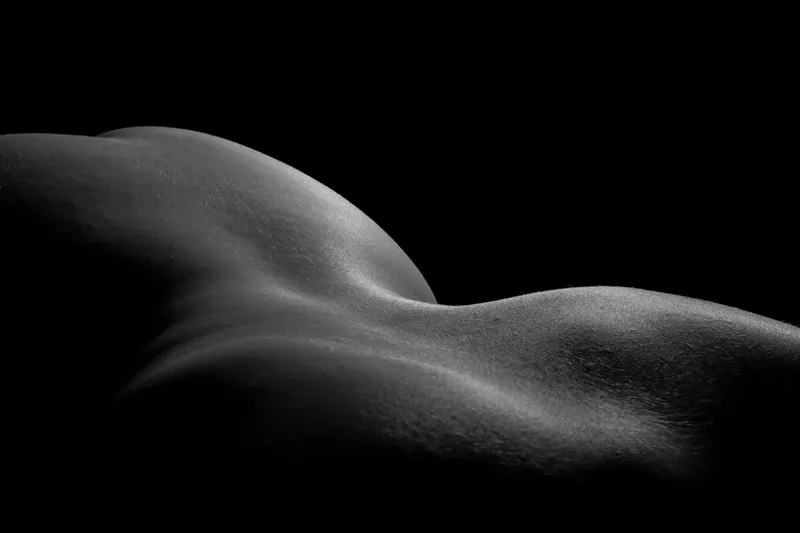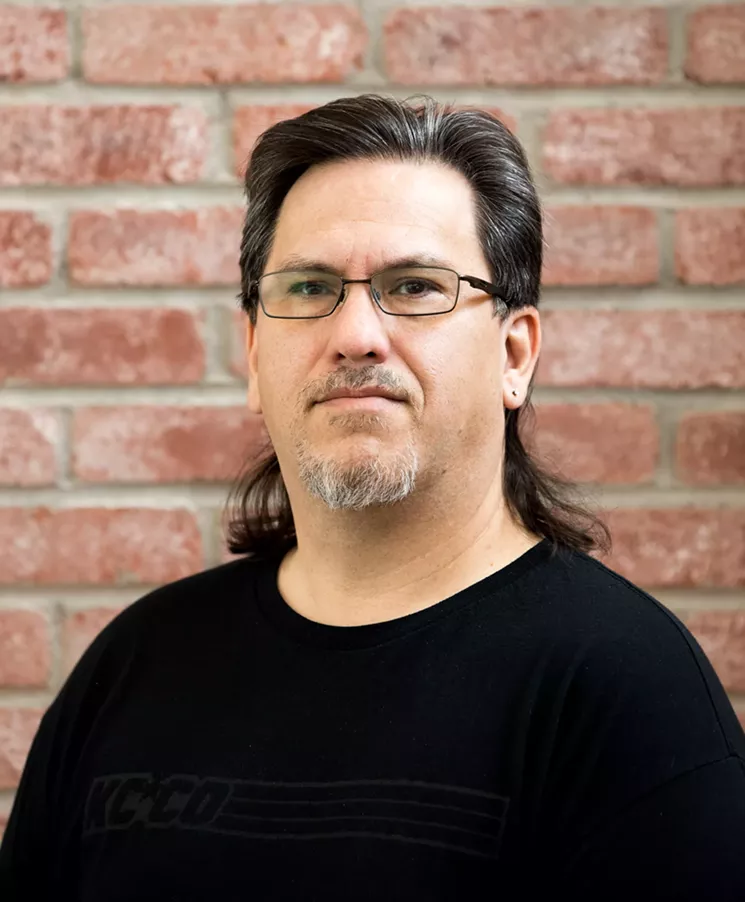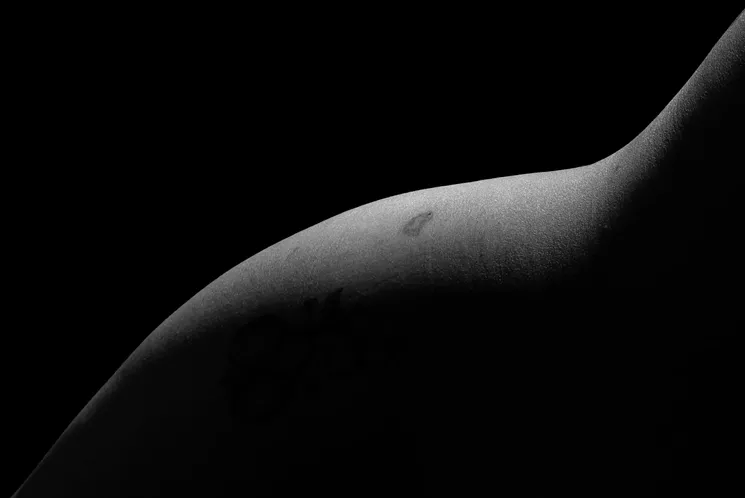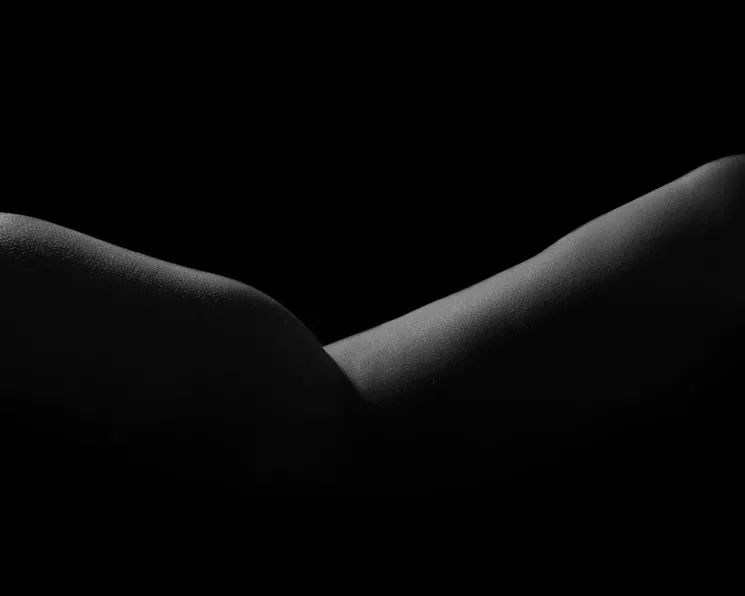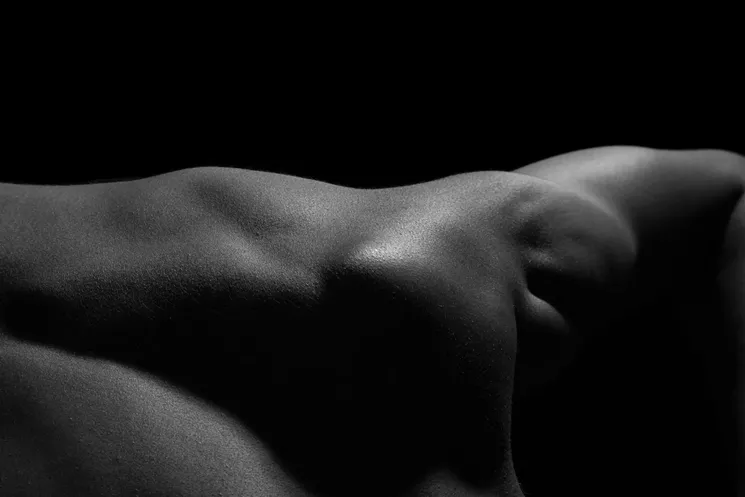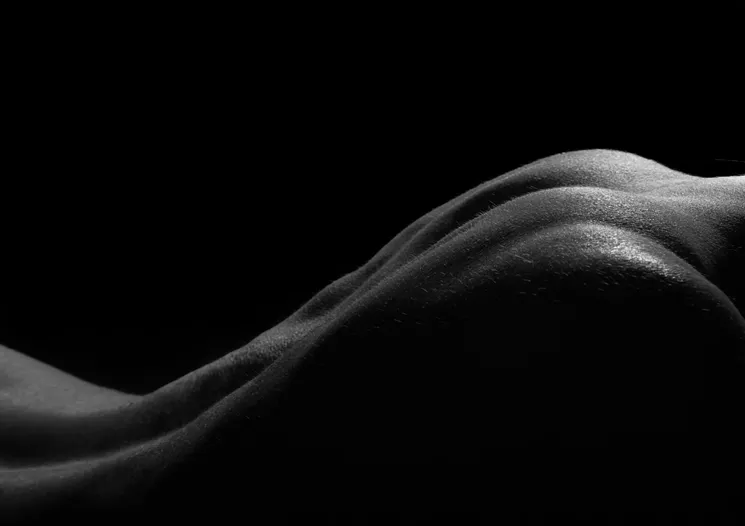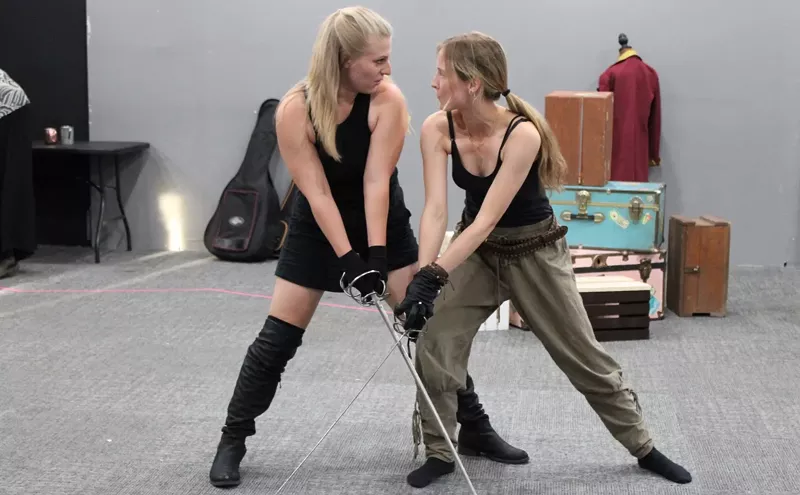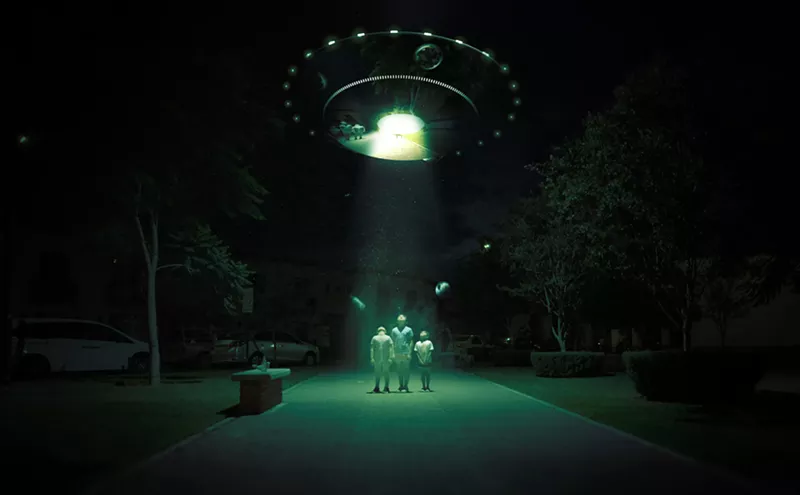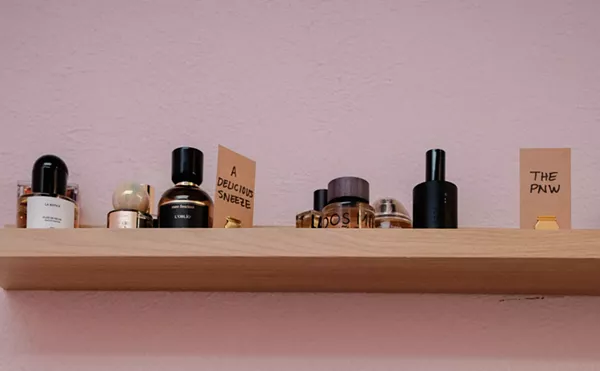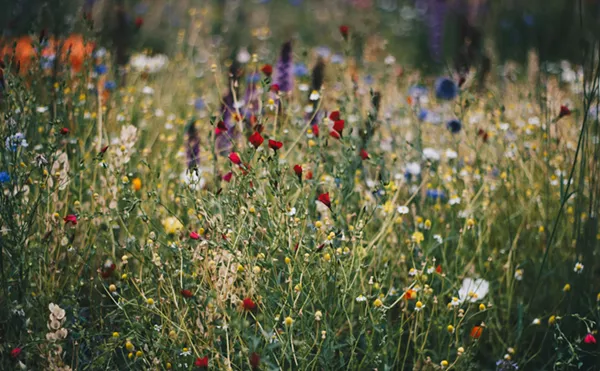Photographer Ted Tahquechi lost most of his vision in a car accident in 1999. Up until the crash, he'd been shooting photos — a skill he picked up in college in the 1980s. After the crash, he says, "I didn't pick up the camera. I didn't do anything at all. I was feeling sorry for myself and feeling disappointed with where I was in my life."
It wasn't until he started using a camera as a second eye — to see pretty much anything that wasn't more than a few inches in front of his face — that he realized he could start shooting photographs again.
Tahquechi went back to college to pursue a second degree in fine-art photography, with his wife's assistance. In a class, a teacher told him they would be practicing portraiture. He panicked.
"That was the worst thing that could happen," he says. "I can't see the actual look on their face when I'm shooting people."
He asked his teacher if he could take on an alternative assignment and shoot portraits as closeups. The teacher agreed to let him try abstract portraiture.
He started a series of photos of close-ups of hands: some praying, others working. “It wasn't until I started shooting pieces and parts of the body in a more abstract way that I got excited about where I was going," says Tahquechi.
These days, he works in a low-key, dark environment, shooting nudes with his wife, who operates the lights and makes sure his models are comfortable.
"She and I have hidden signals that if a model is looking uncomfortable, she gives me signals to let me know," Tahquechi says. "Thank goodness I've got my wife. She knows what I'm looking for."
His models tend to be patient with his slow process, as he carefully scans each image on a laptop, ensuring that every pixel, which he magnifies, is where it belongs.
He is passionate about working with all races, sizes and genders of models. Shooting in black and white gives the series an aesthetic cohesion, he says: "Once you remove all of the color from whatever ethnicity you're shooting, it feels like a cohesive body of work."
"Different skin types interact with light differently," he says. "This is all about the shadow and the highlight and the transition from the dark to the light."
Bodies have their own geography, says Tahquechi: "When you look at somebody's belly and two legs, it feels like a landscape or a mountain range."
Tahquechi will show his work as part of Bodies of Work, an exhibit that opens Friday, February 17, with a reception at 5 p.m. at Access Gallery, 909 Santa Fe Drive. The show runs through March 17.

Audio By Carbonatix
[
{
"name": "GPT - Billboard - Slot Inline - Content - Labeled - No Desktop",
"component": "23668565",
"insertPoint": "2",
"requiredCountToDisplay": "2"
},{
"name": "STN Player - Float - Mobile Only ",
"component": "23853568",
"insertPoint": "2",
"requiredCountToDisplay": "2"
},{
"name": "Editor Picks",
"component": "17242653",
"insertPoint": "4",
"requiredCountToDisplay": "1"
},{
"name": "Inline Links",
"component": "18838239",
"insertPoint": "8th",
"startingPoint": 8,
"requiredCountToDisplay": "7",
"maxInsertions": 25
},{
"name": "GPT - 2x Rectangles Desktop, Tower on Mobile - Labeled",
"component": "24956856",
"insertPoint": "8th",
"startingPoint": 8,
"requiredCountToDisplay": "7",
"maxInsertions": 25
},{
"name": "Inline Links",
"component": "18838239",
"insertPoint": "8th",
"startingPoint": 12,
"requiredCountToDisplay": "11",
"maxInsertions": 25
},{
"name": "GPT - Leaderboard to Tower - Slot Auto-select - Labeled",
"component": "17676724",
"insertPoint": "8th",
"startingPoint": 12,
"requiredCountToDisplay": "11",
"maxInsertions": 25
}
]

